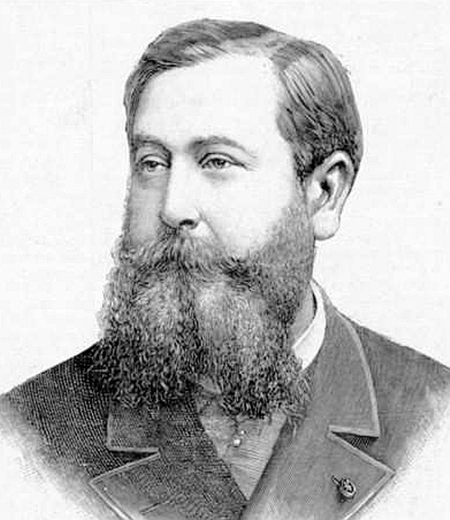
It’s always seemed rather curious to me that while the USA has the United States Postal Service, the man who delivers your letters is called a mailman. In contrast, the British equivalent is called The Royal Mail and your letters are delivered by a postman. British people always talk about “posting a letter” rather than mailing one, but perhaps in recent times the distinction between the two words has become blurred.
The Royal Mail has been going a good many years and was established in 1516 by King Henry VIII. Yes, he’s the one who had all those wives. Now you may be wondering why I am telling you all this. (The thought had occurred to me – Ed.) Well you see, I was looking through my database and realized that I have never told you anything about the music of Léo Delibes. Now I have nothing against him you understand. Really, nothing at all. He was probably a really decent bloke and good to his mother. It was she who brought him up anyway, because his father died when Léo was a child. His father was a postman (or mailman, if you prefer) who must have picked up some fatal infection while slogging around the streets every morning with a sack of letters on his back.
Léo Delibes (LAY-oh duh-LEEB) was born in Saint-Germain-du-Val, a small community a little to the south-west of Paris. His grandfather had been an opera singer and his mother was evidently quite a talented amateur musician. Delibes holds a significant place in musical history because he wrote exceptional ballet music, operas and other music for the stage. His light and graceful musical style was tremendously popular in the France of the Second Empire, presided over (if that is the appropriate verb) by the Emperor Napoleon III.
The music of Delibes influenced other composers too, notably Saint-Saëns, Debussy and Tchaikovsky who was much impressed with the score of Sylvia. He once remarked that “had I known of this music, I would never have written Swan Lake.”
Even if you’ve never heard much of Delibes’ music before, you’ll probably have come across this famous duet better known as The Flower Duet. It has become widely known because of its use in advertisements, in particular a British Airways commercial in the 1980s in which the music was slightly adapted for TV use. Delibes completed the score of the opera in 1882 and it was first performed in Paris. The story is set in British India in the mid-19th century and the music is colourful and exotic, reflecting the taste for all things Oriental, which prevailed during the latter part of nineteenth century France. The Indian fashion brand Lakmé was established in 1952 and was named after the opera.
After Delibes left the Paris Conservatoire where he had studied composition he worked as a rehearsal accompanist and chorus master at the Théâtre Lyrique and as second chorus master at the Paris Opéra. The world of opera and ballet was not new to him. Delibes today is probably best known for his opera Lakmé and his two ballets Coppélia and Sylvia. He wrote many other operas and operettas but these days they are rarely performed.
This video was recorded on 14th July 2017 at the glamorous Concert de Paris, a huge event held each year on Bastille Day at the foot of the Eiffel Tower in front of a massive audience. This explains why the two sopranos are fitted with microphones.
This three-act comic ballet is packed full of gorgeous melodies and was a huge hit when it was first performed in 1870. The story involves one Dr. Coppélius who constructed a life-size mechanical dancing doll which he named Coppélia. It was so lifelike that a village youth called Franz becomes infatuated with it, at the expense of his fiancée Swanhilda who is understandably a bit miffed about the competition. Now if all this sounds slightly familiar it’s because several nineteenth century opera stories revolve around mechanical dolls which somehow come to life. Perhaps the idea originated in the popular travelling shows of the time, which often featured mechanical dolls and other wonders of the age.
This performance is particularly delightful because it features the young student dancers of Paris National Opera’s Ballet School. You’re sure to recognize the opening Mazurka, along with many of the other catchy melodies. This video shows only the first act, but hopefully it will prove tempting enough for you to seek out a performance of the entire ballet.
 |
 |
 |





